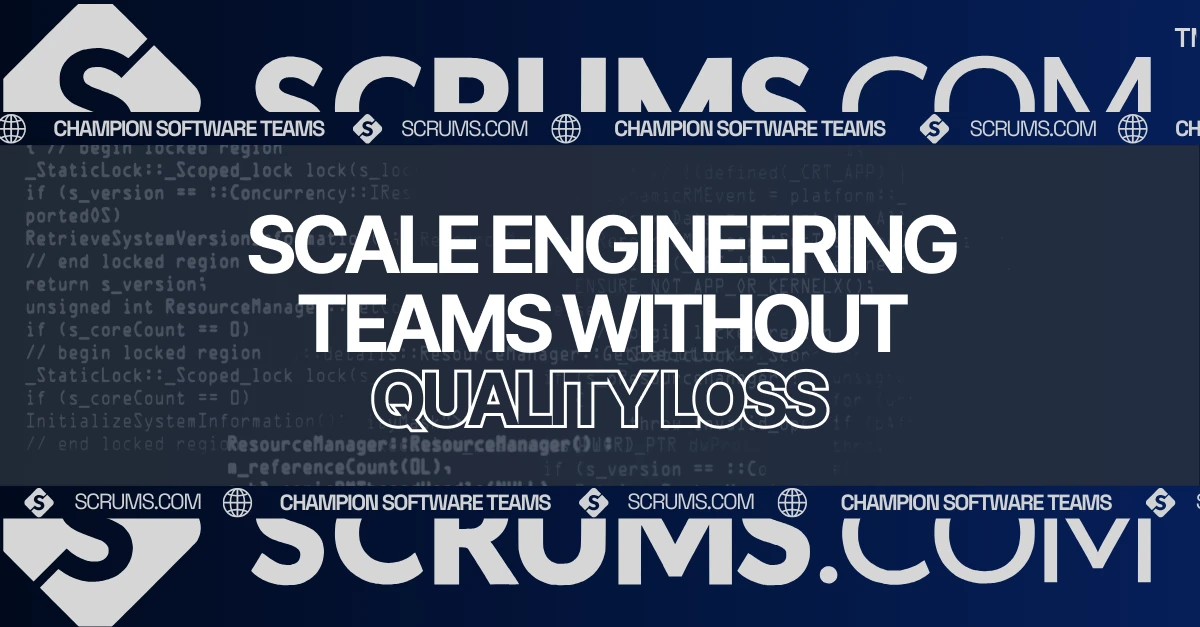SonarQube: Code Quality & Security for DevOps Teams
Introduction to SonarQube
SonarQube is an industry-leading code quality and security analysis tool that helps businesses and development teams deliver robust, secure software. For CTOs and business owners, SonarQube provides the confidence to make strategic decisions based on reliable, continuous code analysis, ensuring that software aligns with both business goals and compliance standards.
What is SonarQube?
SonarQube is a powerful open-source platform that enables developers and businesses to automatically analyze code for bugs, vulnerabilities, and code smells. Originally developed by SonarSource, it has evolved to support more than 25 programming languages and integrates seamlessly into DevOps pipelines, making it a preferred choice for continuous integration and delivery (CI/CD) environments. SonarQube addresses the critical problem of maintaining high code quality and security by providing actionable insights directly within the development workflow.
SonarQube is most effective in environments that prioritize continuous code quality management, such as agile software development teams, DevOps pipelines, and large-scale enterprise projects that require stringent security compliance.
Core Features and Functionalities
Comprehensive Code Analysis: Offers deep static code analysis for over 25 programming languages, including Java, C#, JavaScript, Python, and more. It helps businesses identify and fix code issues early, reducing the cost of later-stage defects.
Automated Code Reviews: Provides continuous, automated code reviews to identify code smells, bugs, and vulnerabilities, streamlining the code review process and enhancing team productivity.
Security Vulnerability Detection: Integrates OWASP, SANS Top 25, and CWE guidelines to detect potential security vulnerabilities, helping businesses prevent data breaches and ensure compliance.
Scalability and Flexibility: Scalable to support small development teams in large enterprise environments, allowing businesses to grow without worrying about tool limitations.
Seamless DevOps Integration: Integrates with popular CI/CD tools like Jenkins, GitHub Actions, Azure DevOps, and more, enabling continuous monitoring and improvement of code quality.
Detailed Reporting and Dashboards: Offers customizable dashboards and detailed reports that provide insights into technical debt, security vulnerabilities, and code coverage, aligning development with business goals.
Benefits for Businesses and Development Teams
For Businesses:
SonarQube enhances ROI by reducing time spent on debugging and ensuring compliance with security standards, ultimately speeding up time to market. By minimizing vulnerabilities and code defects, businesses can achieve significant cost savings and maintain a competitive advantage in highly regulated industries like fintech, healthcare, and ecommerce.
For Developers:
SonarQube streamlines the development process by offering a single source of truth for code quality and security. It supports agile workflows with automatic code reviews and integrates effortlessly with other development tools. Developers benefit from its ease of use, flexibility, and rich support for custom rules and plugins, allowing them to focus on writing clean, maintainable code.
Use Cases and Applications
SonarQube is employed across various industries and development scenarios:
DevOps Workflows: Integral in CI/CD pipelines to ensure code quality and security checks are automated and continuous.
Enterprise Software Development: Used by large organizations to maintain coding standards and compliance across distributed teams.
Industry-Specific Applications:
- Fintech: Ensures compliance with financial data protection regulations by identifying and fixing security vulnerabilities.
- Healthcare: Helps maintain high standards of code quality in mission-critical applications.
- E-commerce: Provides robust checks for security and quality in high-transaction environments.
Integration Capabilities and Ecosystem
SonarQube integrates smoothly with various platforms and tools, making it a versatile choice for software development companies.
CI/CD Platforms: Jenkins, GitHub Actions, GitLab CI, Azure DevOps, Bitbucket Pipelines.
Cloud Platforms: AWS, Microsoft Azure, Google Cloud Platform (GCP).
Development Tools: Supports IDE plugins for IntelliJ IDEA, Visual Studio Code, Eclipse, and more.
APIs and Extensions: SonarQube offers REST APIs and a rich plugin ecosystem, allowing businesses to extend functionalities and integrate seamlessly with existing workflows.
Comparison with Alternatives
While SonarQube excels in code quality and security analysis, it's essential to compare it with alternatives like CodeClimate, Coverity, and Veracode.
Pros: Comprehensive language support, strong security focus, extensive integrations.
Cons: Requires proper setup and configuration to leverage full benefits.
Cost Considerations: SonarQube offers a free Community Edition and paid Enterprise Editions, which vary based on scale and support needs.
Key Differentiators: Unlike some competitors, SonarQube's open-source nature and extensive community support make it a cost-effective choice for both small teams and large enterprises.
When to Choose SonarQube: Opt for SonarQube if you need a comprehensive tool that offers robust code quality and security analysis across multiple languages and integrates seamlessly with your CI/CD pipelines. It is particularly well-suited for organizations looking to automate code reviews, reduce technical debt, and ensure compliance with security standards in both small team settings and large-scale enterprise environments.
Getting Started with SonarQube
Starting with SonarQube is straightforward:
- Setup: Install SonarQube on a server or use the cloud-based version. Ensure all necessary plugins and language analyzers are enabled.
- Integrate with CI/CD: Link SonarQube with your preferred CI/CD tool to automate code scanning.
- Configure Quality Gates: Set up quality gates to define thresholds for code quality and security.
- Analyze and Optimize: Continuously monitor code quality and implement recommended changes.
For a more comprehensive setup, explore SonarQube tutorials and webinars.
Related Tools and Resources
Understanding Jenkins for CI/CD
Best Practices in Code Quality Management
Comparing Code Quality Tools: SonarQube vs. Alternatives
Explore Related Software Development Tools
FAQs
We've got you covered, these are some common questions we receive. Not seeing the answer to something?...
SonarQube offers a range of pricing options, from a free Community Edition to paid Enterprise Editions with varying features.
SonarQube integrates with security guidelines like OWASP, SANS Top 25, and CWE to identify potential vulnerabilities.
Yes, SonarQube scales from small development teams to large enterprises, offering flexible solutions.
Absolutely. SonarQube integrates seamlessly with popular CI/CD tools like Jenkins, GitHub Actions, and Azure DevOps.
SonarQube offers community support as well as paid support options for enterprise customers.
Yes, SonarQube has a robust REST API that allows for extensive customization and integration.
Explore Software Development Blogs
The most recent trends and insights to expand your software development knowledge.








